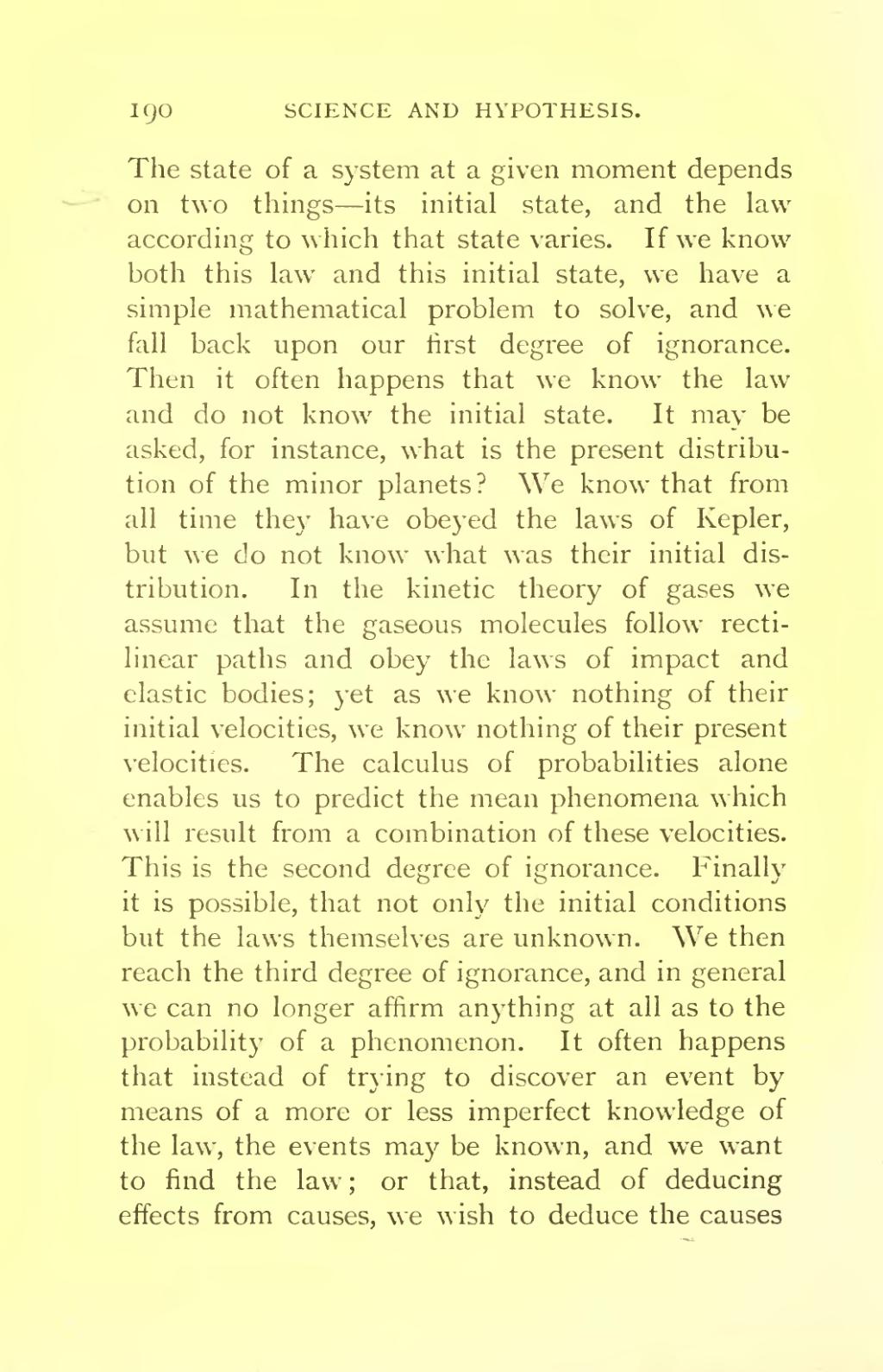The state of a system at a given moment depends on two things—its initial state, and the law according to which that state varies. If we know both this law and this initial state, we have a simple mathematical problem to solve, and we fall back upon our first degree of ignorance. Then it often happens that we know the law and do not know the initial state. It may be asked, for instance, what is the present distribution of the minor planets? We know that from all time they have obeyed the laws of Kepler, but we do not know what was their initial distribution. In the kinetic theory of gases we assume that the gaseous molecules follow rectilinear paths and obey the laws of impact and elastic bodies; yet as we know nothing of their initial velocities, we know nothing of their present velocities. The calculus of probabilities alone enables us to predict the mean phenomena which will result from a combination of these velocities. This is the second degree of ignorance. Finally it is possible, that not only the initial conditions but the laws themselves are unknown. We then reach the third degree of ignorance, and in general we can no longer affirm anything at all as to the probability of a phenomenon. It often happens that instead of trying to discover an event by means of a more or less imperfect knowledge of the law, the events may be known, and we want to find the law; or that, instead of deducing effects from causes, we wish to deduce the causes
Page:ScienceAndHypothesis1905.djvu/222
Appearance

